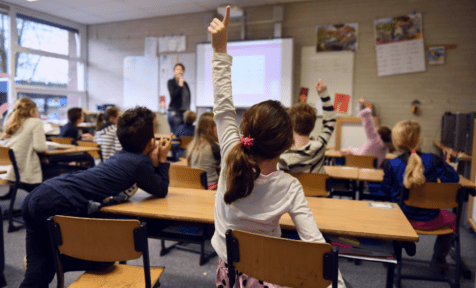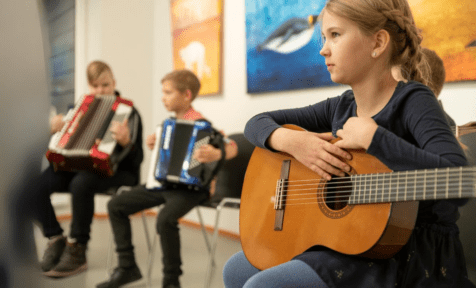OECD released the final volume on PISA 2018 data. The report “Are students ready to thrive in an interconnected world?” discloses young people’s attitudes towards global issues. According to the survey the attitudes of Estonian students towards global problems are similar to their peers in other countries.
Minister of Education and Research of Estonia Mailis Reps is pleased that young Estonians are aware of the challenges facing the world. “Estonian kids understand only too well how important it is to listen to and understand people from other cultures, to know languages and to be aware of the environment in the world we live in today,” she remarked. “Our schools contribute to ensuring that young people in the country not only have good general knowledge and the skills they need for life, but also attitudes that contribute to making the world a better place.”
See also:
Estonian students come first in PISA 2018 financial literacy assessment
As part of the PISA 2018 survey, 15-year-olds in Estonia completed a questionnaire on global issues in addition to taking tests in specific subjects. The questionnaire was designed to gather information on students’ attitudes towards public health, economic and environmental issues. In Estonia, 5316 students from 231 schools took part in PISA 2018.
Estonian students & global issues
The survey revealed that Estonian students are aware of global issues such as climate change, hunger, poverty and gender equality. For example, 63% considered themselves well aware of global health problems, which is similar to the OECD average (66%). As the survey was conducted in 2018, it can be assumed that young people’s self-assessed awareness of the topic on word health issues due to COVID-19 has since increased. A total of 76% of Estonian students consider themselves knowledgeable about international conflicts (OECD average: 66%), 80% on issues caused by poverty (OECD average: 78.3%) and 81.5% on gender equality (OECD average: 83%).
See also:
Interesting Schools: Making learning more engaging through co-agency
More than half of Estonian students say they are prepared to discuss global issues, such as the causes of refugee status, the impact of climate change on different countries, the impact of carbon emissions on the environment and the impact of economic crises on the world economy. The self-assessed readiness of Estonian students to discuss or explain these issues is comparable to the OECD average.
When answering questions related to the global environment, such as reducing the amount of energy people use at home students are ready to take smaller steps (e.g. lights should be switched off when leaving a room), 68.3% of Estonian youngsters said that they do that (average: 70.6%). In Estonia, 29.8% of 15-year-olds participate in environmental protection activities (OECD average: 38.5%).
Interest in other cultures
PISA 2018 confirms that Estonian students are interested in other cultures: 63.2% stated that they were interested in how people live in other countries (OECD average: 59%), want to learn about world religions and cultures of other countries. Almost 80% of the Estonian students agreed that the values and opinions of people from other cultures should be respected, while 85.5% felt that immigrant children should have the same educational opportunities as the children living in the host country.
Just over three-quarters of Estonian youth consider themselves citizens of the world, which is very similar to the OECD average (76.2% vs 76%). More than 90% of Estonian students speak several languages, and a large proportion of their parents (85%) say they can also speak several languages, which is a higher percentage than in other countries.
According to young people in Estonia, they are able to adapt quickly to unusual situations. For example, 60% of students feel they are able to find solutions quickly, while 62% say they are able to overcome difficulties they encounter when communicating with people from other cultural backgrounds. Estonian youth most often come into contact with people from other countries within their circle of friends (67%). The survey also looked at how global issues are addressed in schools. According to the OECD, the main focus in Estonian schools is on studying different cultures and discussing what is happening in the world.





